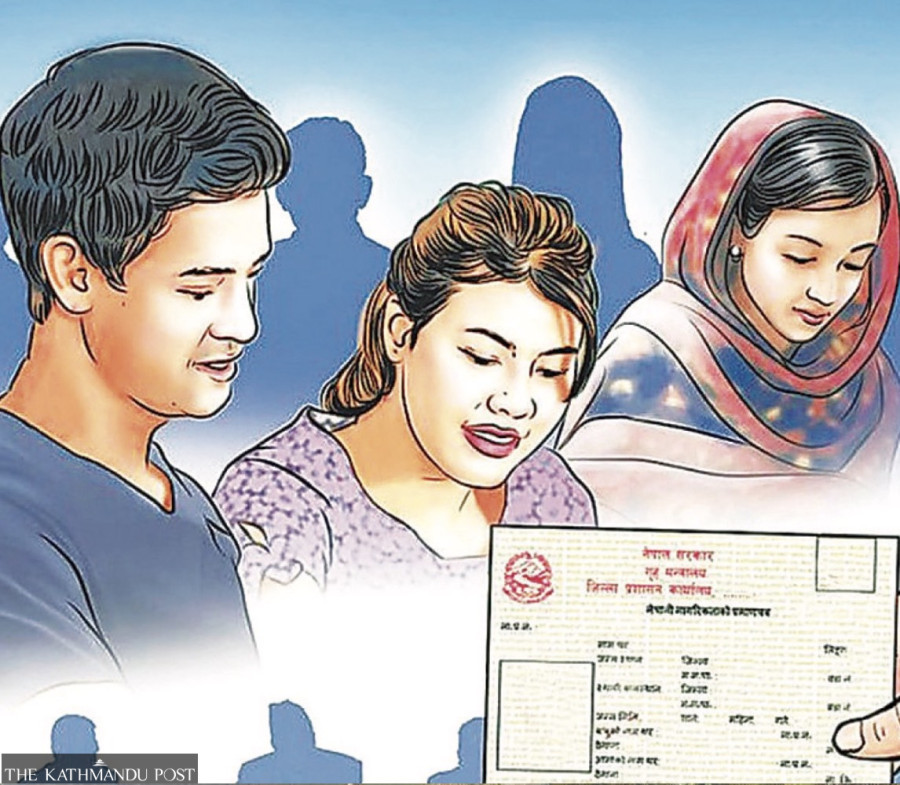Editorial
Criminalising motherhood
It is unjust to link a child’s identity solely to the father, disregarding the mother’s presence.
Nepal has long struggled to ensure citizenship for children in the name of their mothers. Following the Badi women’s movement for equal citizenship rights in the 1990s, the Supreme Court in 2005 ordered the government of Nepal to issue citizenship to every child, regardless of their father’s identity. Yet such citizenships would still indicate: “father not identified”. The Nepal Citizenship Act 2006 did guarantee citizenship through mothers in Articles 11 2(b) and 11 (5), but again the question of the father’s whereabouts hindered the process. The much-anticipated 2015 constitution allowed individuals to obtain citizenship by descent through their mothers—but only if the child’s father is unidentified or untraceable. The Act was first amended in 2022, but it did not necessarily end the discrimination.
The country is now working on a second amendment to the Citizenship Act. The passage of the Citizenship Bill by the House of Representatives—before its endorsement by the National Assembly and the final approval of the President—is already being celebrated as a pivotal step towards gender equality. But experts warn at such a ‘premature and misleading’ celebration as the amendment only relaxes certain procedural hurdles and doesn’t guarantee mothers equal legal footing as fathers in passing citizenship to their children. Fundamentally, the bill still carries long-standing discriminatory provisions in the constitution by merely clarifying the misinterpretation of the term “father unidentified”.
What’s more problematic is that the bill doesn’t fully align with the Supreme Court’s broader interpretation of the term, as it primarily focuses on the father’s name, sidelining other aspects such as paternal affection or care, physical or emotional presence, or the use of the surname or the father’s address. As troubling is the requirement for women to submit a formal self-declaration if the father’s identity is unknown. A father can pass citizenship to his children without facing any scrutiny about the mother, while a mother must undergo a gruelling and often humiliating process to establish the father’s absence. Worse, if her statement is contested, she could face up to three years’ prison and the potential revocation of the citizenship acquired, as per Section 21(3a) of the Citizenship Act. The bill retains this clause. If passed without correction, it could criminalise motherhood. Meanwhile, a man faces no such penalty.
Experts rightly suggest the root of these problems is in the constitution. But with a constitutional amendment to correct such errors nowhere in sight, the best immediate course of action would be an extensive discussion of the bill after it is handed over to the National Assembly. As vital is holding the district administrative officials accountable, as they often overlook or dismiss valid citizenship applications, expressing scepticism towards mothers and making the process tiresome for them. If the upper house members are serious about upholding democratic values, they must thoroughly debate the bill and, if need be, send it back to the lower house for further deliberations and changes.
The goal should be to eliminate discriminatory, patriarchal provisions to ensure basic dignity for women. It is unjust to link a child’s identity solely to the father, disregarding the mother’s presence. Unless mothers can confer citizenship on their children on equal terms with men, without facing stigma, punishment, or any patriarchal oversight, the promise of gender equality will remain elusive.




 23.27°C Kathmandu
23.27°C Kathmandu














